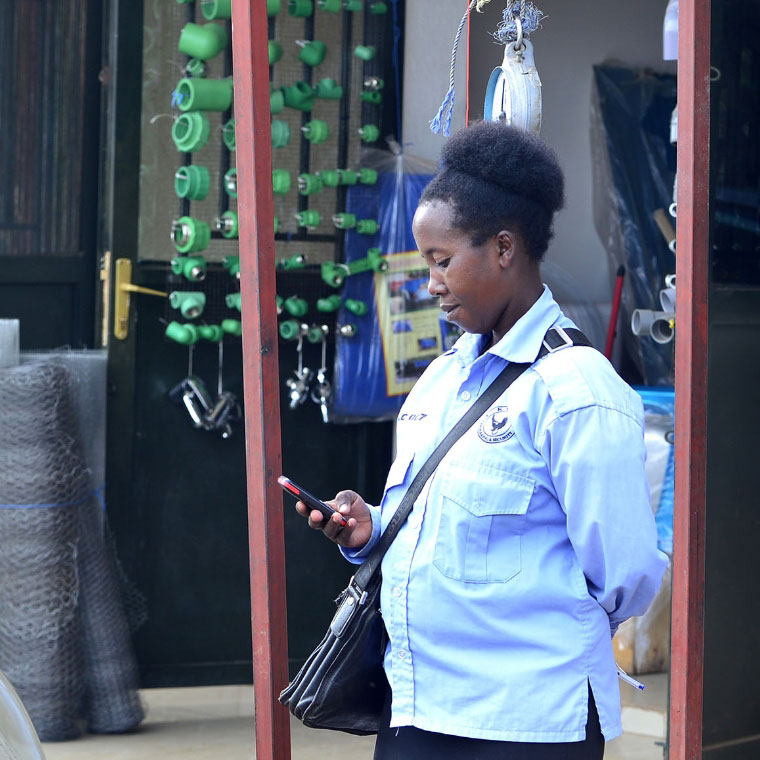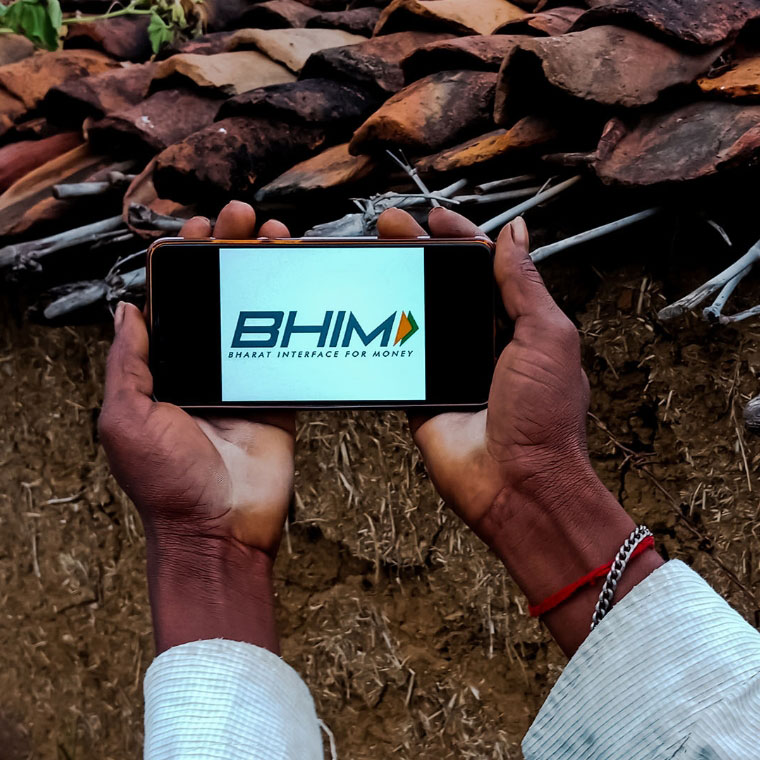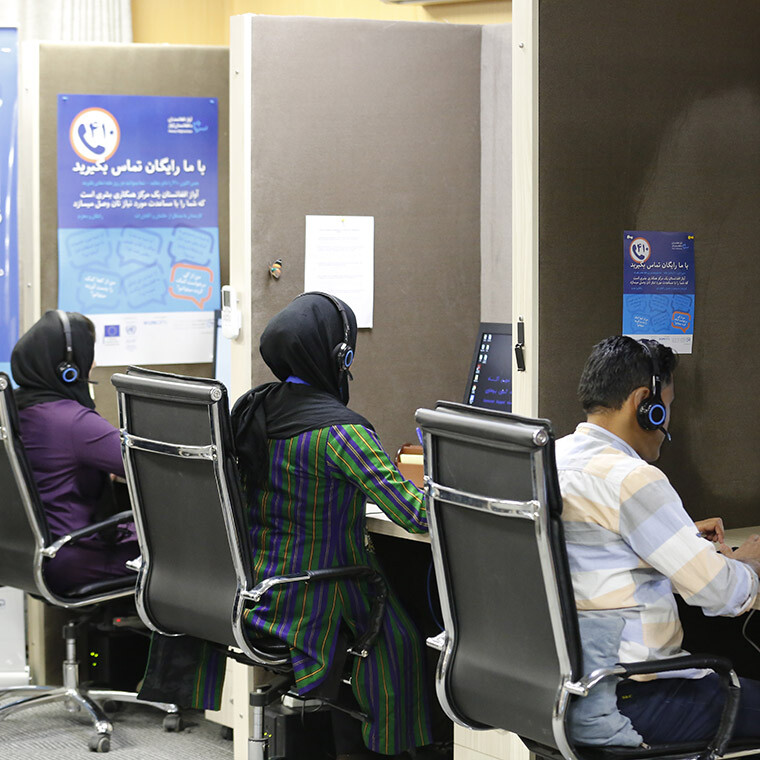UN Principles for Responsible Digital Payments
Building trust, mitigating risks & driving inclusive economies
The world is moving to digital payments because they are swifter, safer, and more transparent than cash. As we rush to reap the benefits of digital payments, responsibility of design, safeguards and implementation must not be overlooked. By digitizing payments responsibly, we can swiftly reach financial equality and advance the Sustainable Development Goals.
2021 EDITION
A lot has changed since the United Nations-based Better Than Cash Alliance charted a fairer and quicker route to financial equality - in 2016. Technology advancements are remaking economies, societies and transforming the digital payments landscape. New financial services have proliferated.
Then the COVID-19 pandemic hit, the world was altered, and digital transactions from governments to citizens nearly tripled.
To respond to the urgent need for digital payments and prepare for the next pandemic or natural disaster, the United Nations Principles Responsible Digital Payments focus on the following:
- Prioritization of women as a key cornerstone for sustained development
- New technologies are developed and delivered responsibly
- A stronger user lens scrutinises all aspects of digital payments, and
- Recommendations to deliver positive lasting change
These Principles define who needs to be responsible, what it means to be responsible and how to be responsible. They are not intended to provide a technical analysis of what each Principle, such as transparency, means in practice.
The UN Principles for Responsible Digital Payments 1 were developed by the United Nations-based Better Than Cash Alliance, guided by its member governments, companies and international organizations. The Secretariat Team would like to thank their members for their bold leadership in responsible payment digitization practices and their insightful contributions to these Principles. This flagship resource responds to the UN Secretary General’s Roadmap for Digital Cooperation.
The PRINCIPLES
How can digital payments be fair for everyone, especially people on a low income or with less digital experience? The unbanked face higher barriers to adoption and might be hesitant about substituting digital payments for their cash. Providers must seek user feedback to ensure their voices are heard. Using and regulating new technologies should consider power imbalances, identify biases, and assess fairness. The goal is for digital payments to be “better than cash” for everyone.
How can users, especially low-income people, trust their money is safe and always available? They need transparency and control to view, access, and use their funds on demand. Real-time payments minimize loss and service interruptions. Policies to license providers and monitor compliance should follow international standards. If losses occur, clients should be compensated seamlessly through efficient customer support.
How can barriers that hinder women's adoption and usage of digital payments be eliminated? Regulations and products need to be re-imagined to ensure equality of access and use. They should reflect women's diverse realities. Their voices should be included in the decision-making and design stages. Data must be collected and analyzed by sex to build gender intentionality into the entire payment experience.
How can users be in control of how their information is collected? Data is often used to improve users' experience, but it might be shared with third parties without consent. Providers must prioritize privacy. They should communicate when, why, and how information is collected using local language, images, voice, or video. Users should have the option to deny sharing of their data.
How can digital payment products be easy to use for everyone? Sometimes developers design products for proficient users, neglecting the diversity of needs. Digital payment providers can rely on consumer data while also working with civil society representatives of underserved groups to understand individuals' behaviors, preferences, and capabilities. The goal is to design end-to-end digital payment experiences that benefit the user.
How can users understand the characteristics and costs of digital payment services? Financial products often come with complex contracts and terms of use. Simple wording should be used to describe features, privacy policies, fees, transaction limits, exchange rates, and actions if unauthorized transactions occur. Messages must be brief, in local languages, and visually appealing or voice-activated to ensure comprehension, especially for low-literacy users.
How can users make and receive payments to and from anyone? Closed systems prevent users from moving money freely and cheaply across providers. Open systems promote collaborative solutions that optimize speed, security, convenience, and affordability regardless of provider, channel, or device. Governments, companies, and development organizations can invest in shared and open infrastructure to reduce costs and increase access.
How can users get their money back quickly if something fails? As more people use digital financial services, complaints and disputes increase. Providers should establish customer support systems, such as 24-hour hotlines, that deliver timely and effective resolutions. When facing a problem, users need to understand what has to be done to fix it.
How can users understand who is responsible when issues arise? Many actors exist in a digital payments' ecosystem - from regulators to electricity utilities to platforms or fintech start-ups. Clients need to know that any of these actors will fulfill their role in a trusted, responsible manner if there are data breaches, lost payments, price hikes, or unethical practices.
Digital payments are safer, more affordable and more efficient than cash. Digital financial equity boosts women’s’ participation in the economy and accelerates attainment of the Sustainable Development Goals.
The challenge for digital payments is to be better than cash in all aspects. If they fall short, a billion new users become a billion reversions to cash.
IN PRACTICE
UN LEADERS
1 The name does not mean all UN member states endorsed or committed to follow this set of principles, which are for guidance purposes only. This resource was developed by the United Nations-based Better Than Cash Alliance, responding to the UN Secretary General’s Roadmap for Digital Cooperation, and UN leaders added their voices in support of these responsible practices for payment digitization.








